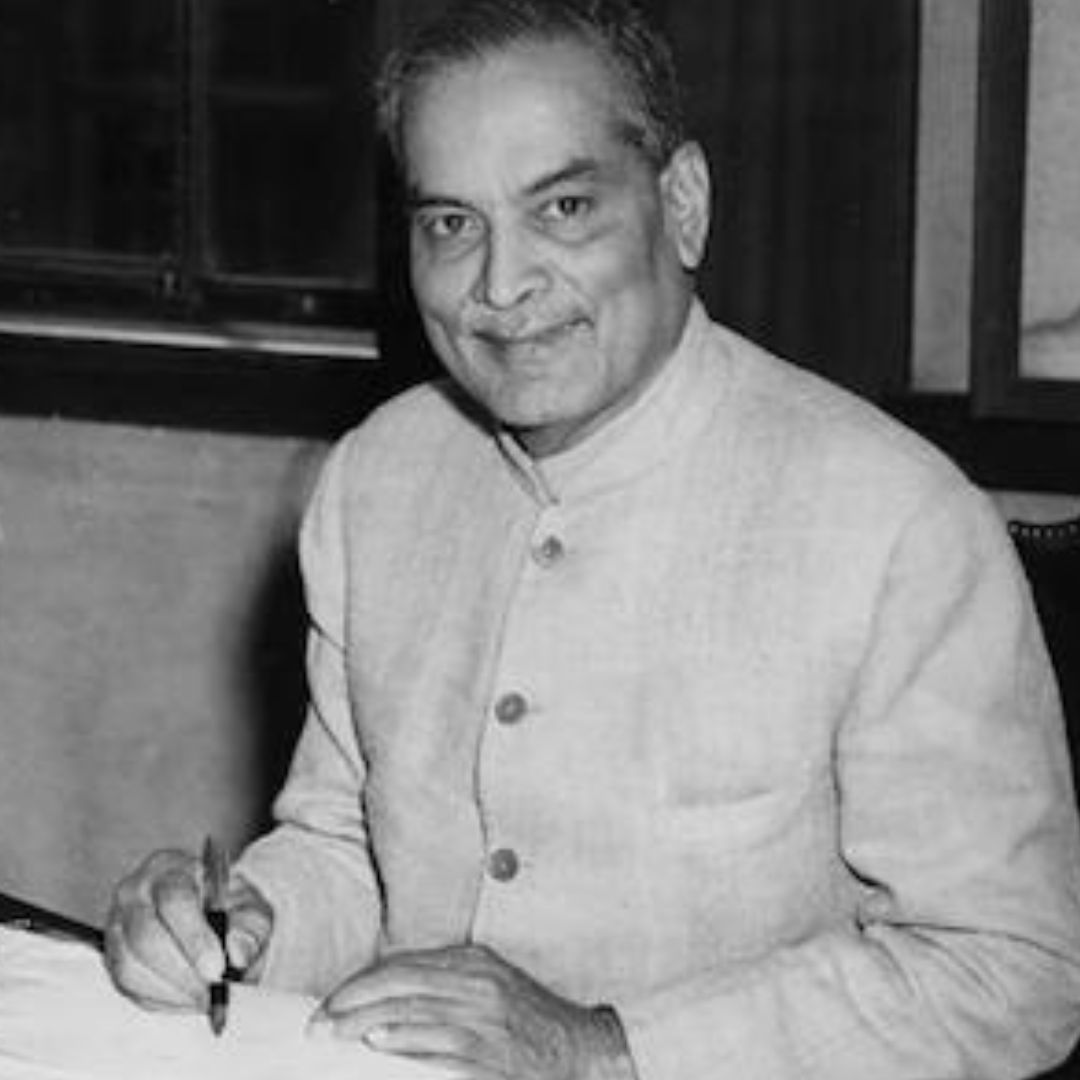
Image Credits: India Today
National Doctors' Day: Remembering The Legendary Physician And Mahatma Gandhi's Saviour On This Day
Writer: Tashafi Nazir
For most people, journalism sounds hectic and chaotic. For her, it's a passion she has been chasing for years. With an extensive media background, Tashafi believes in putting efforts on presenting a simple incident in the most interesting way.
India, 1 July 2022 6:45 AM GMT
Editor : Shiva Chaudhary |
A post-graduate in Journalism and Mass Communication with relevant skills, specialising in content editing & writing. I believe in the precise dissemination of information based on facts to the public.
Creatives : Tashafi Nazir
For most people, journalism sounds hectic and chaotic. For her, it's a passion she has been chasing for years. With an extensive media background, Tashafi believes in putting efforts on presenting a simple incident in the most interesting way.
Bidhan Chandra Roy was a legendary physician, a distinguished Congress leader, an educationist and a philanthropist. He is credited with transforming West Bengal, a ‘problematic state’, into a prosperous one.
National Doctors' Day is celebrated on July 1 every year. The day was first observed in 1991 in the honour of Dr Bidhan Chandra Roy to pay tribute to his contributions in the health domain.
Born on July 1, 1882, Bidhan Chandra Roy was one of the most prominent leaders of India in the 20th century. His birth anniversary, which is also his death anniversary, is observed as Doctors' Day.
BC Roy, as he was known popularly, was a legendary physician, a distinguished Congress leader, an educationist and a philanthropist. He is credited with transforming West Bengal, a 'problematic state' (owing to incidents on either of partition), into a prosperous one.
According to Wikipedia, he was born to a Bengali family in Patna, where his father, Prakash Chandra Roy, served as an excise inspector. His mother, Aghorkamini Devi, was a devoted and religious social worker. Bidhan was the youngest of five siblings, and his parents were ardent Brahmo Samajists who led an austere and disciplined life and devoted their time and money to the service of people in need, irrespective of caste or creed.
Lifelong Source Of Inspiration
After completing his bachelor's degree, he applied to undertake postgraduate studies at the Indian Institute of Engineering Science and Technology and the Calcutta Medical College. Both institutions accepted his application, and he chose to attend the latter. While at medical school, Roy came upon an inscription which read, "Whatever thy hands findeth to do, do it with thy might." These words became a lifelong source of inspiration for him.
Bengal was partitioned while Roy was in college. Opposition to the partition was being organised by nationalists like Lala Lajpat Rai, Bal Gangadhar Tilak and Bipin Chandra Pal. Roy resisted the immense pull of the movement. Instead, he controlled his emotions and concentrated on his studies, realising he could better serve his nation by qualifying in his profession first.
Intending to study abroad, Roy sent at least 29 applications for admission to the dean at St Bartholomew in England before being finally accepted.
After his return, he believed that 'Swaraj' would remain a dream unless the countrymen were strong and healthy in body and mind. He made immense contributions to the organisation of medical education and played an essential role in establishing the Jadavpur TB Hospital, Kamala Nehru Memorial Hospital, Chittaranjan Seva Sadan, Victoria Institution and Chittaranjan Cancer Hospital. In 1926, he also opened the Chittaranjan Seva Sadan for women and children.
Roy entered politics in 1925 and became a giant killer of pre-Independence politics when he defeated Surendranath Bannerjea in an election, India Today reported.
Mahatma Gandhi's Friend And Physician
BC Roy was among the few individuals who could prevail over Mahatma Gandhi, as he was his friend and physician. In 1933, when Mahatma Gandhi was on one of his fasts, his health deteriorated, but he refused to take medicine and said it was not "swadeshi".
He asked Roy: "Why should I take your treatment? Do you treat four hundred million of my countrymen free?" Roy answered saying, "No, Gandhiji, I could not treat all patients free. But here, I came not to treat Mohandas Karamchand Gandhi but to treat him who represents my country's four hundred million people."
BC Roy was elected to the Congress Working Committee, the mayor of Calcutta and vice-chancellor of Calcutta University. But he declined the position of governor of Uttar Pradesh despite the approval of British monarch King George VI. As Calcutta mayor, Roy expanded free education and medical assistance and improved the city's civic amenities.
He was one of the few leaders Jawaharlal Nehru, and Vallabhbhai Patel trusted. After Independence, Congress wanted him to be the Bengal chief minister. However, he was not ready to accept the offer and instead wanted to work as a doctor. It took the word of Mahatma Gandhi to change his mind in 1948.
He was awarded the Bharat Ratna in 1961. He continued working as a doctor and Bengal chief minister until his last day. Roy had already donated his Calcutta house for running a nursing home.
On July 1, 1962, Roy attended to his patients in the morning, cleared files as a CM and sang a song from his favourite "Brahmo Geet". In his honour, the first national Doctor's Day was celebrated in 1991.
 All section
All section














